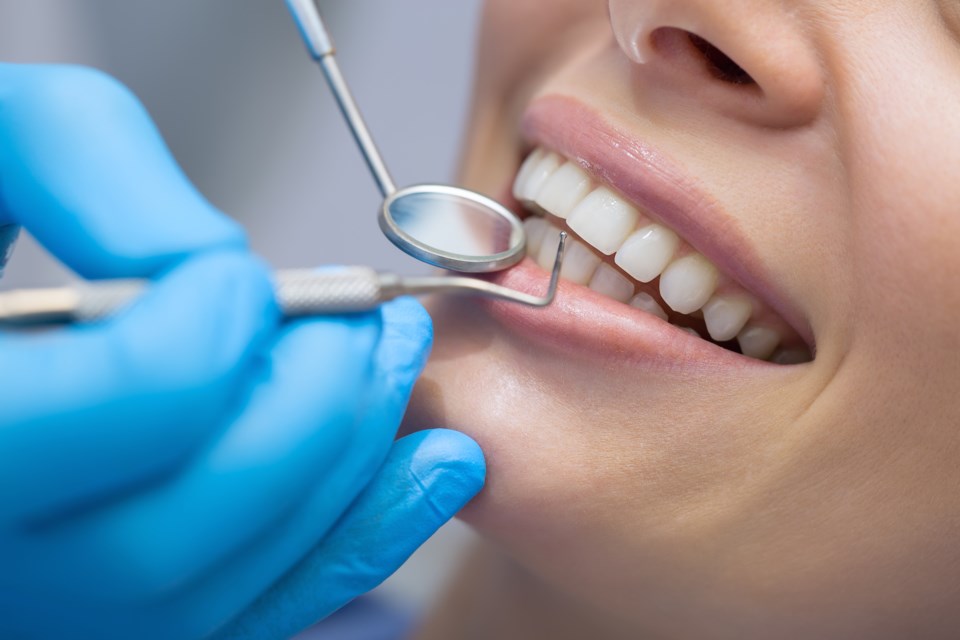BurlingtonToday received the following open letter regarding the Canadian government's new Canadian Dental Care Plan.
The Honourable Mark Holland, Minister of Health
The Honourable Terry Beech, Minister of Citizens’ Services
Government of Canada
Dear Ministers Holland and Beech,
As an independent dental hygienist, I applaud the recent launch of the Government of Canada's new Canadian Dental Care Plan (CDCP).
Action to improve oral health care has been proven to have a positive impact on the overall health of vulnerable populations.
Independent Dental Hygienists play a critical role in providing preventative and therapeutic oral health care services and in educating Canadians, and are instrumental to improving access to care for underserved populations who need it most.
Both the CDCP, and the care provided within it, are not delivered under the exclusive purview of a dentist.
Specifically, scaling, cleaning, polishing, sealants and fluoride services are provided exclusively by a dental hygienist, working within a dental office or, more and more frequently, independently at their own practice.
Delivering services at hygiene clinics, long-term care facilities, homes, schools and via mobile clinics, Independent Dental Hygienists make it possible for children and their parents, seniors, residents in long-term care facilities and group homes, and northern, rural, remote and Aboriginal communities across Canada with limited or no local access to dental or dental hygiene services, to receive the oral health care they require and deserve. ("Spotlight on Independent Dental Hygiene Practice", Canadian Dental Hygienists Association)
For this reason, I would like to raise some of my concerns related to the CDCP;
- CDCP communications, including many recent federal householders, focus primarily on “dentists” and make no mention of the important preventative role hygienists play in keeping teeth and surrounding tissues healthy, and for educating Canadians about oral health care methods and practices to avoid the need for expensive future treatment by a dentist.
- The CDCP “visit a dentist” message demonstrates a lack of foresight and accuracy with respect to CDCP services, and communications of elected representatives, including you, who have accepted the responsibility to promote critical community health and disease prevention services, and does a disservice to everyone your message reaches.
- Independent Dental Hygiene clinics are primarily owned and operated by women, while Dental Offices remain primarily owned and operated by men. As of 2021, 98 per cent of dental hygienists and 99 per cent of dental assistants were women, and 60 per cent of dentists were men (“Women in Dentistry - The Changing Dental Workforce”, Canadian Dental Association). The improper focus of CDCP communications on “dentists” poses a severe disadvantage to the thousands of professional, mainly female, small business owners who also continue to work to financially recover from costs associated with COVID-related shutdowns, implementing required COVID protocols, safety systems and impacts of fallow time, purchasing additional PPE, and encouraging patients to resume post-COVID oral health services.
- The CDCP fee schedule also prescribes lower fees to be paid for services provided by Independent Dental Hygienists than fees paid to their colleagues co-located with a dentist(s).
- Economies of scale on the purchase of dental health sundries (polishing paste, sterilization wrap, polishing cups, bioindicators, etc), bank loan discounts and other benefits are available to dentists which are not enjoyed by Independent Dental Hygienists. As a result, independent operators incur expenses that their colleagues would not. This practice further disadvantages a primarily female frontline service workforce.
- Finally, CDCP coverage provides for 7.5 minutes of debridement (scaling) for a child under 11 years, 15 minutes for a child 12 to 16 years, and 60 minutes for an adult once per year is wholly inadequate to address the needs of children and seniors. My professional experience is that a minimum of 6 units of debridement (1.5 hours) per year are required for this demographic. While possible under the CDCP to request additional units for patients, and while Independent Dental Hygienists have a professional responsibility to do so in order to provide adequate treatment to patients, the administrative burden and unremunerated time for a small business owner to undertake requests for this important preventative measure is completely untenable.
I ask that you, as the Ministers of Health and Citizens’ Services, revise the CDCP fee guide to ensure that Independent Dental Hygienists are remunerated for services at the same rate as hygienists working for dentists.
I also request that CDCP communications be more inclusive and accurate by changing references to “dentist” to “oral health care provider”.
I, and my colleagues, look forward to hearing from your offices on the steps you have taken to correct these issues as, together, we continue to work to improve health outcomes for our most vulnerable Canadian communities.
Best regards,
Melanie Bianco, RRDH
Aldershot Dental Hygiene
Burlington, Ont.



